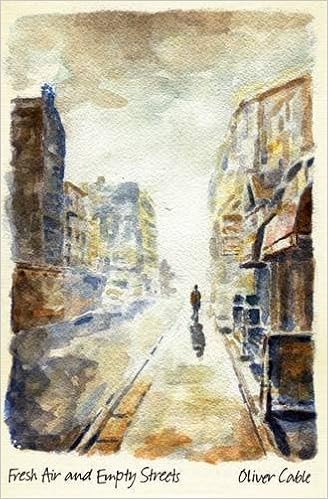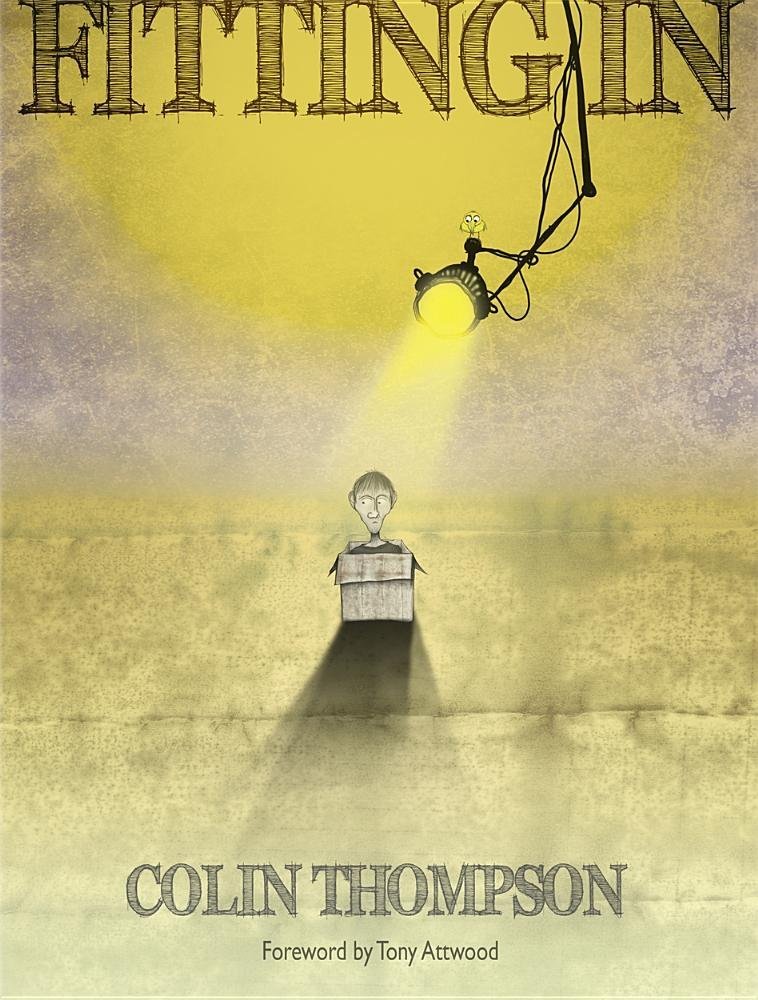 These classic stories have been cast in wonderfully fresh translations by Hugh Aplin. To start with, let me say that it is an attractive package overall: seven stories, an account of Chekhov’s life and his works (the plays as well as the books), a fair few photographs of Chekhov and family, and a select secondary bibliography (to which should be added Rosamund Bartlett’s outstanding biographical work Chekhov: Scenes from a Life).
These classic stories have been cast in wonderfully fresh translations by Hugh Aplin. To start with, let me say that it is an attractive package overall: seven stories, an account of Chekhov’s life and his works (the plays as well as the books), a fair few photographs of Chekhov and family, and a select secondary bibliography (to which should be added Rosamund Bartlett’s outstanding biographical work Chekhov: Scenes from a Life).
Category: Book Reviews
Book Reviews
A review of The Abecedarium of the Artist’s Death by Moussa Kone
 Kone’s drawings are beautifully composed and are not without a healthy dollop of black humour (e.g. ‘I is for Ingrid who trusted her friends…’) but for the most part they are quirky and amusing rather than disquieting, as is almost always the case with Gorey. They will raise a wry smile, certainly, but they won’t put you on edge as Gorey’s drawings are wont to do.
Kone’s drawings are beautifully composed and are not without a healthy dollop of black humour (e.g. ‘I is for Ingrid who trusted her friends…’) but for the most part they are quirky and amusing rather than disquieting, as is almost always the case with Gorey. They will raise a wry smile, certainly, but they won’t put you on edge as Gorey’s drawings are wont to do.
A review of The Joyce Girl by Annabel Abbs
 From the beginning to the end The Joyce Girl is an enchanting tale, beautifully written. It drew me in and wouldn’t let go; I was caught and trapped right up to the epilogue. And what a cast of characters … their names kept dropping from this book like exotic fruits, starting with James Augustine Aloysius Joyce, Samuel Beckett, Madam Egorova, Alexander Calder, Nijinsky, Scott Fitzgerald, Zelda Fitzgerald, Stella Steyn, Thomas McGreevy, Pablo Picasso, Dr Carl Gustav Jung, Gertrude Stein, Margaret Morris, John O’Sullivan, Isadora Duncan, and Stirling Calder all get a mention.
From the beginning to the end The Joyce Girl is an enchanting tale, beautifully written. It drew me in and wouldn’t let go; I was caught and trapped right up to the epilogue. And what a cast of characters … their names kept dropping from this book like exotic fruits, starting with James Augustine Aloysius Joyce, Samuel Beckett, Madam Egorova, Alexander Calder, Nijinsky, Scott Fitzgerald, Zelda Fitzgerald, Stella Steyn, Thomas McGreevy, Pablo Picasso, Dr Carl Gustav Jung, Gertrude Stein, Margaret Morris, John O’Sullivan, Isadora Duncan, and Stirling Calder all get a mention.
Fresh Air and Empty Streets by Oliver Cable
 The author’s descriptive passages of Paris are so powerful and illuminating that as Felix wanders through the City of Light it feels like we are right there beside him and when he stumbles his way into a romantic interlude with the beautiful waitress Senna, we can be thankful that the author allows us to turn away at the right moments. As his fumbling turns to manliness Felix begins to understand something about love and relationships and his attitude towards his father alters.
The author’s descriptive passages of Paris are so powerful and illuminating that as Felix wanders through the City of Light it feels like we are right there beside him and when he stumbles his way into a romantic interlude with the beautiful waitress Senna, we can be thankful that the author allows us to turn away at the right moments. As his fumbling turns to manliness Felix begins to understand something about love and relationships and his attitude towards his father alters.
A review of Fitting In by Colin Thompson
 The clever storytelling of Colin Thompson in Fitting In somehow binds itself to you and makes you fully engaged with the pages in front of you. It invites you to sit and read a page or two and then ponder what you just read. My eyes were opened to a life completely different from my own. This is the beauty of memoirs. They pull you out of the self-centered life you may be living and make you engage with someone else’s life story. As I read, I saw the raw and coarse pain of depression and the desire to fit in.
The clever storytelling of Colin Thompson in Fitting In somehow binds itself to you and makes you fully engaged with the pages in front of you. It invites you to sit and read a page or two and then ponder what you just read. My eyes were opened to a life completely different from my own. This is the beauty of memoirs. They pull you out of the self-centered life you may be living and make you engage with someone else’s life story. As I read, I saw the raw and coarse pain of depression and the desire to fit in.
A review of The Birdman’s Wife by Melissa Ashley
 The author has researched her material thoroughly, even becoming a volunteer at the Queensland Museum and learning how to prepare ornithological specimens. This makes her descriptions of the preparations of the birds in her novel thoroughly convincing, as when Elizabeth is required to prepare the body of a brush turkey for its skeleton to be displayed. And the descriptions of her drawing and painting the prepared birds sometimes take the breath away, as with the quetzal, who ‘sported iridescent sheens in its plumage, like silk from China, gossamer and spider’s webs, droplets of water catching the light’ (94).
The author has researched her material thoroughly, even becoming a volunteer at the Queensland Museum and learning how to prepare ornithological specimens. This makes her descriptions of the preparations of the birds in her novel thoroughly convincing, as when Elizabeth is required to prepare the body of a brush turkey for its skeleton to be displayed. And the descriptions of her drawing and painting the prepared birds sometimes take the breath away, as with the quetzal, who ‘sported iridescent sheens in its plumage, like silk from China, gossamer and spider’s webs, droplets of water catching the light’ (94).
A review of Panic Attack by Jason Starr
 Starr’s novel is wholly contemporary – we are in twenty first century New York, no question – but it also harks back to post-war noir and Jacobin revenge dramas of yore. Sin is indelible, so too self-delusion and self-justification. These people – Adam and Johnny, Dana the wife and Marissa the daughter – cannot become better.
Starr’s novel is wholly contemporary – we are in twenty first century New York, no question – but it also harks back to post-war noir and Jacobin revenge dramas of yore. Sin is indelible, so too self-delusion and self-justification. These people – Adam and Johnny, Dana the wife and Marissa the daughter – cannot become better.
A review of Tongue Screw by Heather Derr-Smith
 The recurring themes of this brilliantly haunting collection run a powerful range, from tragedy and trauma to innocence and carnal desire. Derr-Smith offers an intimate, unyieldingly honest account of her life and experiences. The subjects, the lines, the words all scream truth. Often brutally. Often beautifully. Her themes and approach leave a lasting impression.
The recurring themes of this brilliantly haunting collection run a powerful range, from tragedy and trauma to innocence and carnal desire. Derr-Smith offers an intimate, unyieldingly honest account of her life and experiences. The subjects, the lines, the words all scream truth. Often brutally. Often beautifully. Her themes and approach leave a lasting impression.
Interview with Michelle Cahill on Letter to Pessoa
Michelle Cahill reads “Aubade for Larkin” and talks about her new book Letter to Pessoa, including the book’s genesis, its shifting genres (and genders), about literary connection and disconnection, about writing meta-fiction, and the intersections between writing practice and philosophical discourse,…
Divine Residues: A review of Mean Numbers by Ian Ganassi
 Contradiction and absurdity reign freely, and non sequiturs pop up out of the blue, each fetched further than the last, as if the poet were striving for the most unlikely next line ever to come out of left field. The effect is to loosen up the reader’s consciousness and allow her to gaze into an open-ended world of expansive possibilities. It’s a wild world, where sense and nonsense are on an equal footing, but she soon finds that the poet has left a trail of delectible crumbs to follow.
Contradiction and absurdity reign freely, and non sequiturs pop up out of the blue, each fetched further than the last, as if the poet were striving for the most unlikely next line ever to come out of left field. The effect is to loosen up the reader’s consciousness and allow her to gaze into an open-ended world of expansive possibilities. It’s a wild world, where sense and nonsense are on an equal footing, but she soon finds that the poet has left a trail of delectible crumbs to follow.